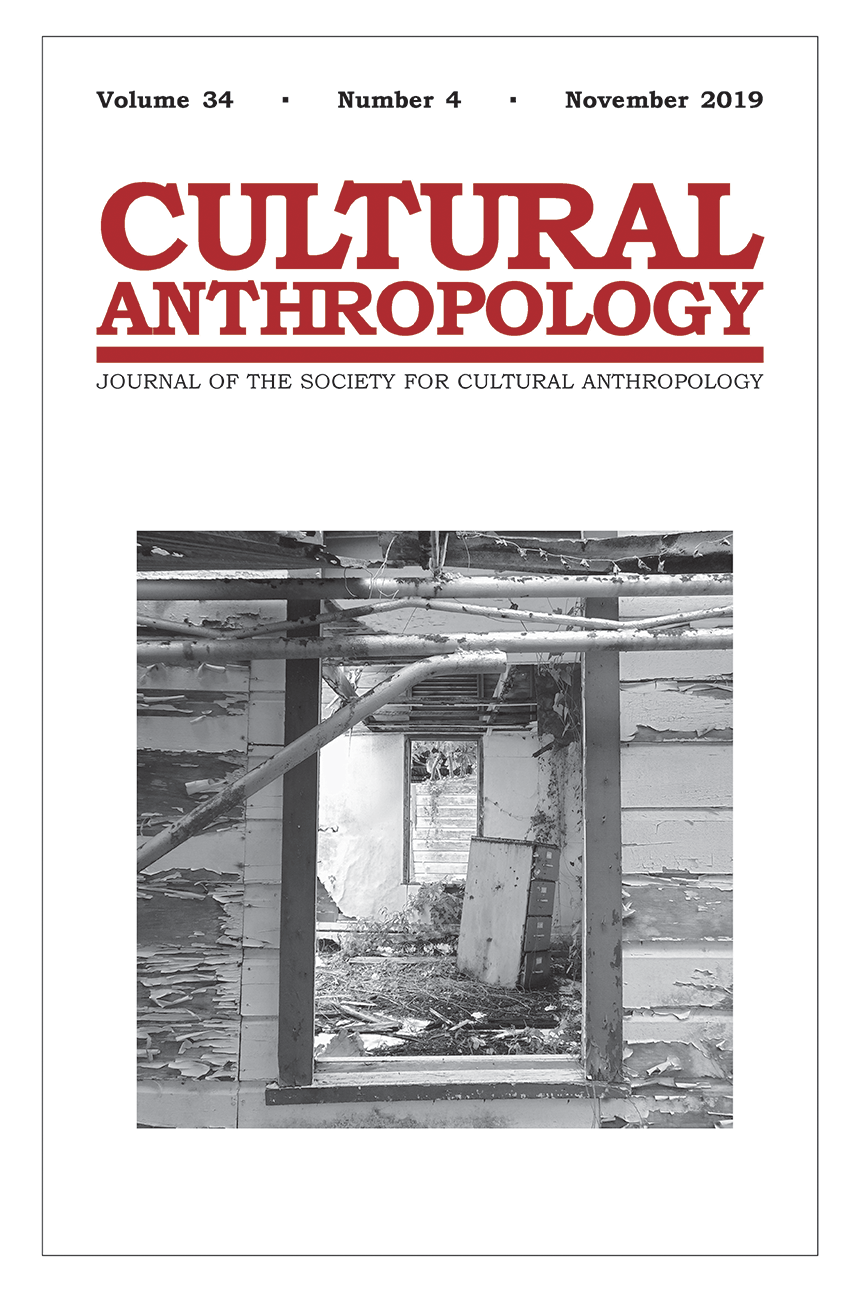
The November 2019 issue of Cultural Anthropology features five original research articles. Amy Moran-Thomas’s discussion of the devastating effects of diabetes in Belize offers a powerful perspective from which to question one of the fundamental categories of biomedicine: communicable disease. Weaving together Belizean understandings of the transmissibility of illness with donor and public health discourses of disease, Moran-Thomas crafts an argument that reimagines the connections between the Caribbean and related regions through an understanding of the historical processes that have created these “localities.” The work of tamper-proof seals is at the center of Anna Weichselbraun’s ethnography of the International Atomic Energy Agency and its efforts to make visible compliance with the Nuclear Non-Proliferation Treaty of 1970. New understandings of national security, of trust and verification, open up in this creative exploration of the particularity of material, semiotic infrastructures. Kathryn A. Mariner brings a new perspective to questions of kinship and documentation with her provocative engagement with the paperwork practices of an American adoption agency. In this thoughtful and nuanced ethnography, Mariner argues that the production and circulation of files profiling “birth parents” and “adoptive families” creates the temporal possibility for new actions and relationships. The problem of populism organizes Bo Kyeong Seo’s subtle and compelling ethnography of Thailand’s Red Shirt Movement. Deftly exploring complex engagements that problematize the distinction between populism and democracy, Seo draws attention to the new subjectivities and forms of politics that emerge at the level of everyday life. Meghan L. Morris’s paper develops a detailed ethnographic perspective on peace and reconciliation in Colombia’s protracted civil conflict. She focuses, in particular, on the importance of land to this process, and demonstrates how claims to title and restitution are being used by residents of Urabá to anticipate future political and legal arrangements. Such speculation provides a range of insights for an anthropology of time.
The photo on the cover of this issue is by Amy Moran-Thomas.
